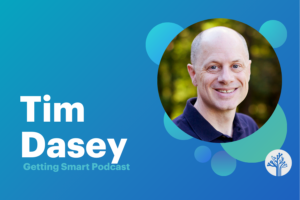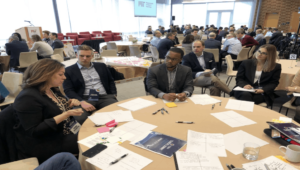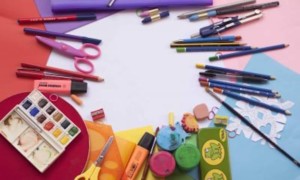In Defense of Liberal Arts AND Employability

My dad told me to get a liberal arts degree. Instead, I suffered through a rigorous training in engineering and finance. I learned thermodynamics and financial mechanics but did little reading, no writing, and no contemplation of the past, the future, or the well being of my fellow man.
We were both half right: I had great job prospects but I left school uneducated. At the time, being educated and unemployed seemed a better alternative, but it’s taken decades of remedial humanities to augment my job training.
For high school students and their parents contemplating the new employment landscape, what’s the best path, job training or liberal arts?
In defence of liberal arts. “Skills based education has reached rare consensus, but it’s wrong,” said Fareed Zakaria to Anderson Cooper. Zakaria explained, “We believe that a broad based education is best, where students learn how to read, how to study, how to write. They can follow their curiosity.
In a commencement speech last year Fareed Zakaria outlined three benefits of a liberal arts education. “The most important use of it is that it teaches you how to write.” He adds, “When I begin to write, I realize that my ‘thoughts’ are usually a jumble of half-baked, incoherent impulses strung together with gaping logical holes between them.” I couldn’t agree more about the importance of writing to understand and improve your own thinking.
Zakaria said, “The second great advantage of a liberal education is that it teaches you how to speak and speak your mind.”
“The final strength of a liberal education is that it teaches you how to learn – to read in a variety of subjects, find data, analyze information,” said Zakaria.
Expanded to include interviews with Marc Zuckerberg, Jeff Bezos, and others, Fareed turned the commencement speech into a book, out this week, In Defense of a Liberal Education.
In defense of employability. Zakaria argued it’s not skills for your first job that are important, it’s the skills that will remain important through your sixth job. However, the return on investment from traditional higher education has eroded substantially as college costs have risen and youth unemployment and underemployment have remained stubbornly high. Graduating from a liberal arts program with a $100,000 in debt and few job skills puts young people in a terrible predicament. Leaving before graduation with a big debt and no skills is disastrous.
Liberal arts education is great general preparation for life, but even liberal arts grads should be employable. That requires a resume of success in several work settings demonstrating punctuality, work ethic, the ability to work on a team, and production of quality work product. High school and college internships and jobs are critical to boosting employability.
A defense of liberal arts is no defense for a sequence of random courses and bad teaching. Quality learning experiences provoke thought, build knowledge, and develop exposition. Twenty secondary schools we profiled used project-based learning to engage students in interdisciplinary projects that resulted in public demonstrations of powerful learning.
Liberal arts faculty should embrace growth as well as beauty and truth. The Collegiate Learning Assessment from CAE can be used to demonstrate progress in critical thinking and written communication skills.
In summary, a liberal arts degree can be a great foundation for work and life but parents and young people should consider an efficient and affordable pathway to a degree including college credit in high school and low cost options for the first two years of college. Students should start building a portfolio of work based learning evidence in high school and have a first job in mind as they earn a liberal arts degree.
Likewise, students aiming for technical employment shouldn’t be shortchanged when it comes to skills that will power lifelong learning and opportunity. Good career and technical education programs open rather than close doors. Like RAMTEC student Scott Gould, technical training can lead to a great job with a company that will pay for college. Many learners like Scott will work and earn simultaneously throughout their career.
Career training programs should have a good dose of reading, writing, and critical thinking. Where that’s not the case, young people can launch a blog and build a portfolio to develop and showcase their abilities.
#SmartParents should encourage the benefits of liberal arts studies and employability.
This blog is part of our Smart Parents Series in partnership with the Nellie Mae Education Foundation.
For more, see:








0 Comments
Leave a Comment
Your email address will not be published. All fields are required.